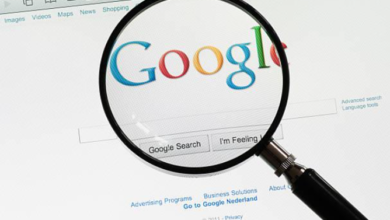Understanding Water Heaters: A Comprehensive Guide for Homeowners

Water heaters are indispensable appliances in modern homes, providing the luxury of hot water for bathing, cleaning, and cooking. However, they are often underappreciated until they malfunction, leaving homeowners in a chilly predicament. In this guide, we delve into the world of water heaters, shedding light on their types, functionality, maintenance, and the crucial role of plumbers in keeping them running smoothly.
Types of Water Heaters:
- Storage Tank Water Heaters: These are the most common type, comprising a large insulated tank where water is heated and stored until needed. They are available in various sizes to accommodate different household needs.
- Tankless (On-Demand) Water Heaters: As the name suggests, these units heat water directly without the use of a storage tank. They are more energy-efficient than storage tank heaters since they only heat water when required, eliminating standby heat loss.
- Heat Pump Water Heaters: This type of water heater uses electricity to move heat from one place to another instead of generating heat directly. They are highly energy-efficient but may not be suitable for colder climates.
- Solar Water Heaters: These harness the power of sunlight to heat water, typically through solar panels installed on the roof. While initial installation costs can be high, they offer significant long-term savings on energy bills.
Functionality and Maintenance:
Regardless of the type, water heaters function on a similar principle: cold water enters the tank, gets heated by a heating element, and is then distributed throughout the house. Proper maintenance is crucial for ensuring their longevity and efficiency. Here are some maintenance tips:
- Regular Inspections: Schedule annual inspections by a qualified plumber to check for leaks, corrosion, and other issues.
- Flushing the Tank: Sediment buildup can affect the heater’s efficiency. Flushing the tank periodically helps remove sediment, improving performance.
- Temperature Adjustment: Set the temperature to a safe and energy-efficient level (usually around 120°F or 49°C) to prevent scalding and reduce energy consumption.
- Checking Pressure Relief Valve: The pressure relief valve should be tested periodically to ensure it’s functioning correctly and to prevent the tank from bursting due to excessive pressure buildup.
The Role of Plumbers:
Plumbers play a crucial role in the installation, repair, and maintenance of water heaters. Their expertise ensures that the heater is installed correctly, minimizing the risk of leaks, gas leaks, or electrical hazards. Additionally, when issues arise, plumbers have the skills and knowledge to diagnose and repair them promptly, restoring the hot water supply to the home.
Installation: Proper installation is paramount for the safety and efficiency of the water heater. Plumbers assess the household’s hot water needs and select the appropriate size and type of heater. They also ensure compliance with building codes and safety standards, such as proper venting and adequate clearance around the unit.
Repair: From minor leaks to major malfunctions, water heater problems can disrupt daily routines and cause inconvenience. Plumbers are equipped to handle a wide range of issues, including replacing heating elements, fixing leaks, and addressing faulty thermostats. Prompt repairs not only restore hot water but also prevent further damage and potential safety hazards.
Emergency Services: Water heater emergencies can occur at any time, leaving homeowners stranded without hot water. Plumbers offer emergency services, available 24/7, to address urgent issues promptly. Whether it’s a burst tank or a malfunctioning heating element, a reliable plumber can provide timely solutions, restoring comfort to the home.
Conclusion
In conclusion, water heaters are essential appliances that require proper care and maintenance to ensure their longevity and efficiency. From selecting the right type to regular inspections and timely repairs, homeowners can rely on the expertise of plumbers to keep their water heaters running smoothly. By understanding the functionality of water heaters and the role of plumbers, homeowners can enjoy an uninterrupted hot water supply for years to come.





